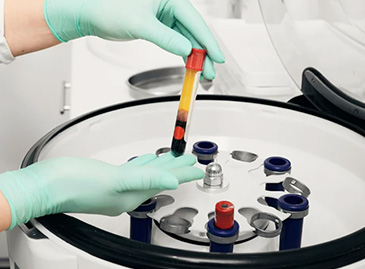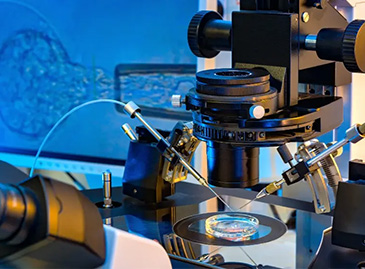
What is the Rehab Process?
Rehabilitation, or rehab, is a key step in helping individuals recover from addiction. It offers a well-organized program to assist individuals in reclaiming control of their lives after battling substance abuse. Addiction can deeply impact both the body and mind, but with professional treatment, long-term recovery is possible. Rehab for drug addiction helps individuals address their physical dependence on substances while also working on the mental and emotional aspects of addiction. Each person’s recovery journey is unique, and rehab for drug addiction programs are created to cater to individual needs, making it a vital part of overcoming addiction.
Assessment and Intake
Assessment and intake are the first stage of the rehabilitation process. A customized treatment plan is developed at this phase by medical professionals after reviewing the patient's past medical and addiction history. Evaluations of the body and mind are part of this assessment to determine the severity of the addiction and identify any underlying medical conditions. A personalized treatment plan that addresses each person's unique needs is developed using the information obtained. The likelihood of a full recovery rises as a result of the tailored attention this guarantees.
Detoxification (Detox)
The process of detoxifying the body of addictive chemicals is an essential step in drug rehabilitation. To treat the patient's withdrawal symptoms and guarantee their safety, medical professionals keep a tight eye on this procedure. The type of drug used will determine the withdrawal symptoms, which can vary. Having medical monitoring throughout this phase helps minimize suffering. As a prerequisite to the therapeutic work that comes next, the patient must undergo detoxification.
Therapy and Counselling
In order to help people understand and address the causes underlying their substance use, therapy and counselling are essential components of addiction rehabilitation. Group therapy, family therapy and individual counselling are just a few of the treatment modalities used in rehab. Cognitive behavioural therapy (CBT) gives patients the tools to avoid relapse by assisting them in recognizing negative thought patterns and behaviours. By helping people discover their own motivations for wanting to improve, motivational interviewing can give them the confidence to take charge of their own healing process. Furthermore, contingency management provides incentives for abstaining, which reinforces good behaviour. These treatments seek to offer the psychological and emotional assistance required for a sustained healing process.
Support Groups and Peer Involvement
A sense of community and peer support are provided by support groups, which are essential for rehabilitation. Organizations that bring people together with comparable experiences are Alcoholics Anonymous (AA) and Narcotics Anonymous (NA). Individuals who want to feel understood and supported might benefit greatly from these groups' shared ideas, accountability, and encouragement. The sense of isolation that many experience during addiction and recovery is often diminished by peer interaction. Individuals can also develop coping mechanisms and benefit from the experiences of others in group therapy. Family counselling is just as vital since it helps mend the damage done to relationships by addiction and educates relatives how to assist the healing process in an efficient manner.
Aftercare and Long-Term Recovery
Relapse prevention and long-term healing are two major reasons why aftercare is an essential component of the rehabilitation process. In order to stay on the path to healing once formal therapy is over, people require continual support. Prolonged counselling, sober housing, and outpatient care are all included in aftercare programs; these resources provide ongoing direction and assistance. With the support of these programs, people can maintain their sobriety while reintegrating into daily life. Long-term stability is established through aftercare, which greatly lowers the likelihood of relapse and gives the patient the confidence to continue on their recovery path.
Conclusion
The rehab process involves several key stages: assessment, detox, therapy, peer support, and aftercare. Every stage is essential to assisting someone in kicking an addiction and leading a better life. Given that every person's rehabilitation journey is different, personalized care is crucial. In order to overcome addiction, you need to get professional help first. Don't be reluctant to get in touch and take this critical step toward living a better, addiction-free life. To attain long-term sobriety and improved quality of life, drug addiction treatment programs provide the necessary resources, structure, and assistance. Rehab for drug addiction offers the tools, structure, and support needed to achieve lengthy sobriety and a better quality of life. Additionally, the prices in Turkey for rehab are often more affordable, providing high-quality care at a lower price.
Stroke Rehabilitation Price Turkey



